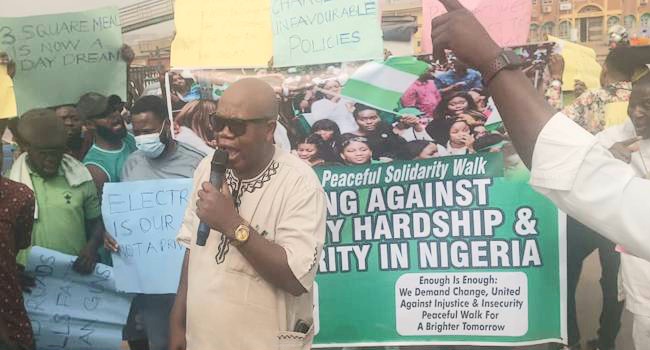By: Babagana Bukar Wakil, Maiduguri
The United Nations (UN) Department of Safety and Security has issued a warning that the planned protests in Nigeria may be hijacked by groups with ulterior motives.
Various Nigerian groups are planning a nationwide protest from August 1 to 10, dubbed “10 Days of Rage,” to address the country’s soaring cost of living and economic hardship.
In a threat and risk assessment dated July 19, the UN expressed concerns about the possibility of violence, citing past instances where similar protests in Nigeria escalated.
The assessment recalls the February 13-16, 2023, protests triggered by the scarcity of new Naira notes, which led to violent outbreaks in the South-East and South-South regions of Nigeria, including the states of Akwa Ibom, Delta, Edo, Imo, Kwara, Lagos, Ondo, Ogun, Oyo, and Rivers. During this civil unrest, several bank branches and ATMs were vandalized, and major roads were blocked.
With a high turnout expected for the “10 Days of Rage” protest, large-scale disruptions to normal economic and social activities are anticipated. The threat assessment also indicates potential confrontations between groups supporting the government and those opposing its policies from late July through mid-August.
Despite acknowledging the economic hardship in the country, some organizations and leaders of ethnic groups, particularly in the South-South and South-East regions, are discouraging participation in the August 1-10 protests. For instance, the Ọhanaeze Ndigbo, a socio-cultural organization representing the interests of Igbos, is urging restraint.
This highlights the possibility of the events being hijacked by other interest groups or detractors, complicating the security landscape of different areas,” the UN stated.
The protesters are demanding the reversal of several policies implemented by President Bola Tinubu, which they believe have exacerbated economic hardship. Key demands include the reinstatement of petrol and tertiary education subsidies, restoration of affordable electricity tariffs, and reduction of import duties to pre-crisis levels. They are also calling for a state of emergency on inflation, greater transparency in public administration, a public disclosure and reduction of political office holders’ salaries and allowances, and judicial system reforms.
In a statement to President Tinubu, Joe Ajaero, President of the Nigeria Labour Congress (NLC), emphasized that it would be difficult to prevent Nigerians from expressing their dissatisfaction with the government’s policies.
PRR/UN/BBW BBW OJO/BBW/BBW




